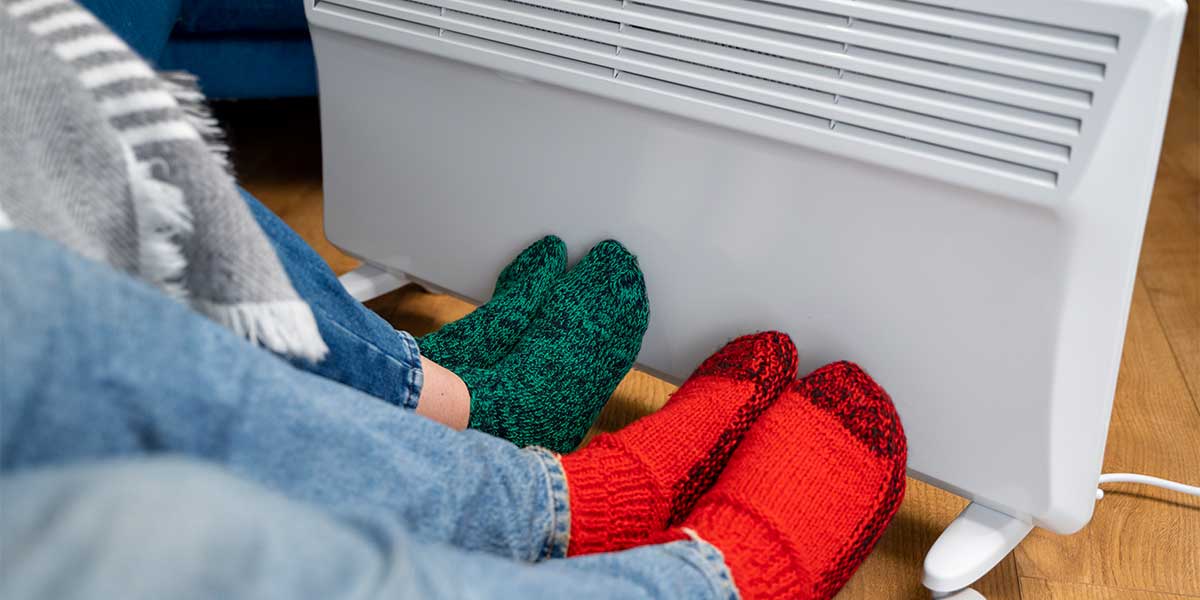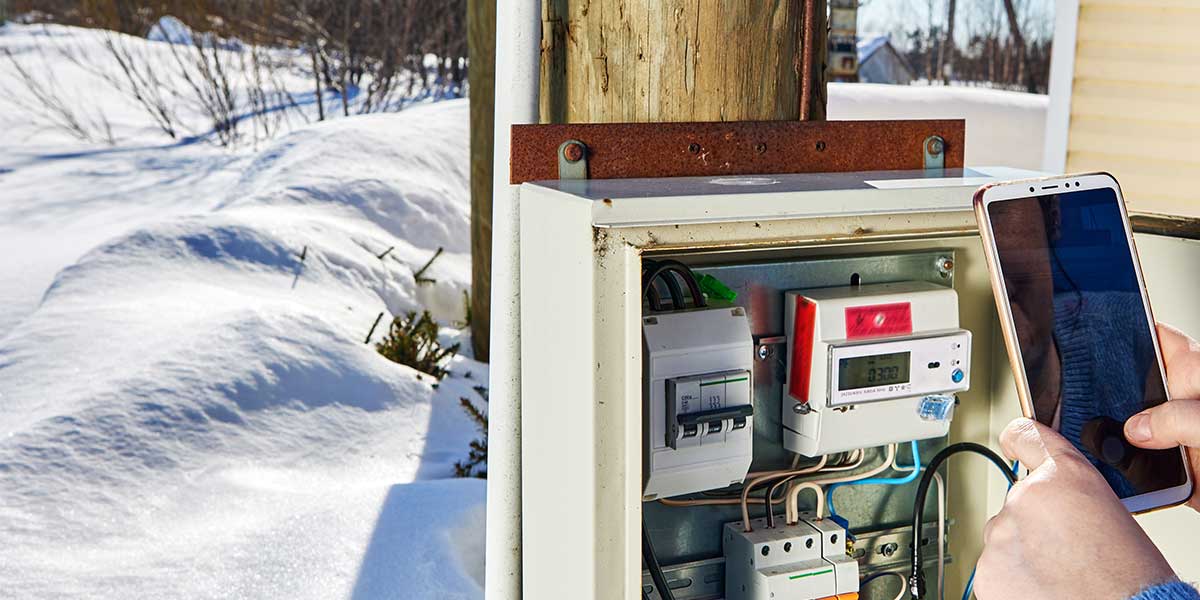Freezing temperatures, snowstorms, and icy winds put extra pressure on your home’s electrical system every year. While winter can bring cozy nights by the fireplace and hot chocolate in hand, it also brings unique electrical risks that can affect your safety, comfort, and wallet. From power outages and surges to heating equipment overloads, winter is the season when electrical safety should be top of mind.
At Expert Electric, we know that preparation is key to keeping your home running smoothly during the harshest months of the year. That’s why we’ve put together this detailed guide of Winter Electrical Safety Tips, so you can stay safe, warm, and worry-free.
Why Winter Electrical Safety Matters
Electrical problems don’t take a holiday just because the snow falls, they actually become more common. Increased demand for heating, holiday lighting, and indoor appliances creates a higher load on your electrical system. Combine this with extreme weather conditions, and the risks multiply.
Some of the most common winter-related electrical hazards include:
- Power Outages caused by ice and snow damaging power lines.
- Power Surges when electricity is suddenly restored after an outage.
- Overloaded Circuits due to heaters, lights, and holiday décor.
- Improper Heater Usage that can increase fire risks.
- Generator Misuse leading to carbon monoxide poisoning or electrical hazards.
Taking steps now can help prevent costly damage, protect your family, and ensure your home is ready for whatever winter throws your way.
1. Be Prepared for Power Outages
Power outages are practically a winter tradition in many parts of Canada. Ice storms, falling tree branches, and heavy snow can knock out power for hours or even days. Power outages are common in cold weather. Preparing ahead not only ensures safety, it helps you power through longer outages. The Government of Canada offers valuable guidance on getting ready for a power outage, including building an emergency kit and making a household plan. Learn more: How to prepare before a power outage (Government of Canada)
How to prepare:
-
Stock up on emergency supplies. Keep an outage kit ready with LED flashlights, extra batteries, candles, bottled water, and non-perishable food. Plan for at least 72 hours without power.
-
Have alternate heating options. A wood-burning fireplace or portable heater (used safely) can be a lifesaver during extended outages.
-
Charge devices in advance. Before a storm hits, ensure your cell phones, power banks, and laptops are fully charged.
-
Avoid opening the fridge/freezer often. This helps preserve food for longer when the power is out.
Pro tip: Always report outages to your local utility provider so crews can respond quickly.
2. Protect Your Home with Surge Protection
One of the most overlooked winter electrical safety tips is surge protection. A sudden return of power after an outage can cause voltage spikes, damaging expensive electronics like TVs, computers, and kitchen appliances.
Your options include:
-
Surge Protector Power Strips. Affordable and perfect for plugging in electronics like laptops, gaming consoles, and small appliances.
-
Whole-Home Surge Protection. Installed directly at your electrical panel, this provides complete protection for your entire home. It’s especially important for homes with costly appliances, home offices, or smart home systems.
Investing in surge protection not only prevents damage but also saves you money in the long run.
3. Use Space Heaters Safely
Space heaters are a common solution for chilly rooms, but they are also one of the top causes of winter house fires. To use them safely:
-
Keep them at least 3 feet away from curtains, bedding, and furniture.
-
Place heaters on a stable, flat surface. Never set them on rugs or unstable tables.
-
Plug directly into a wall outlet. Avoid using extension cords or power strips, which can overheat.
-
Turn them off when sleeping or leaving the room.
Remember: While zone heating can save energy, improper use can cost you far more than your electricity bill.

4. Consider a Backup Generator
A backup generator is one of the best investments for rural or storm-prone areas. When the power goes out for an extended period, a generator can keep essential appliances running, including your heating system, refrigerator, and medical equipment.
Tips for safe use:
-
Choose the right size. A licensed electrician can help you determine whether you need a portable generator or a whole-home standby system.
-
Never run generators indoors. Carbon monoxide buildup can be deadly. Place generators outside, at least 20 feet from windows and doors.
-
Maintain regularly. Check fuel, oil, and connections before winter storms hit.
At Expert Electric, we provide generator installation and maintenance to make sure you’re never left in the dark.
5. Inspect and Maintain Holiday Lighting
Holiday cheer often comes with extra lights indoors and outdoors. While festive, they can also be a fire hazard if not handled properly.
Safety tips for holiday lights:
-
Use outdoor-rated extension cords and lights for exterior displays.
-
Check for frayed wires or broken sockets before use.
-
Avoid overloading circuits, spread decorations across multiple outlets.
-
Set a timer so lights automatically turn off late at night.
6. Test Smoke Alarms and Carbon Monoxide Detectors
Increased heater use, fireplaces, and generators raise the risk of fire and carbon monoxide exposure. Working alarms save lives.
-
Test alarms monthly.
-
Replace batteries every 6 months.
-
Replace smoke detectors every 10 years.
-
Install carbon monoxide detectors on each floor of your home.
7. Schedule a Professional Electrical Inspection
The best way to protect your home during winter is by having your electrical system checked by a professional. An inspection can uncover:
-
Overloaded circuits
-
Outdated wiring
-
Faulty breakers
-
Potential fire hazards
Our licensed electricians at Expert Electric provide thorough inspections, ensuring your home is ready for winter.
FAQs About Winter Electrical Safety Tips
1. Why are power outages more common in winter?
Snow, ice, and strong winds often damage power lines and transformers, leading to widespread outages.
2. Do surge protectors really make a difference?
Yes. Surge protectors prevent sudden voltage spikes from frying your electronics, saving you from costly replacements.
3. Can I plug a space heater into an extension cord?
No. Space heaters should always be plugged directly into a wall outlet to prevent overheating and fire hazards.
4. How often should I maintain my generator?
Generators should be inspected before winter and tested monthly to ensure they’re in good working condition.
5. When should I call an electrician for help?
If you notice flickering lights, tripped breakers, burning smells, or outlets that feel hot, contact a licensed electrician immediately.
Final Thought
Winter can be beautiful, but it also puts your home’s electrical system to the test. By following these Winter Electrical Safety Tips, you can protect your family, save money, and enjoy peace of mind all season long. Don’t wait until the next storm to think about electrical safety, take action today.
For expert advice, professional inspections, or generator installation, trust Expert Electric to keep your home running safely this winter.
Contact Expert Electric
Looking for reliable help with your electrical system this winter? Our team is here for you.
- 📞 Call Us: 604-681-8338
- 📧 Email Us: info@expertelectric.ca


